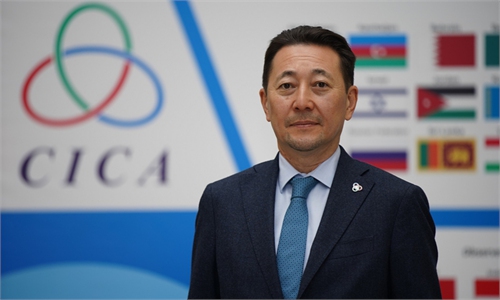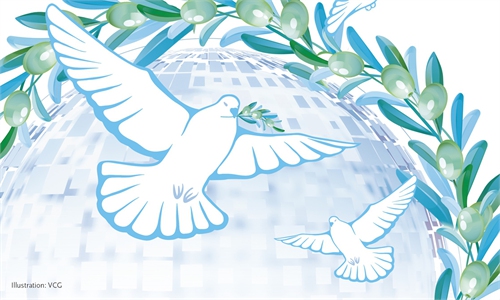
Illustration: VCG
This week, world leaders gathered in New York for the annual United Nations General Assembly, one of the most important platforms for practicing multilateralism. However, the event was overshadowed by the increasing trend of divisive actions worldwide, which are ironically often carried out exactly in the name of "multilateralism," as if the interests of a few countries could represent global consensus.In this context, China has called for a revival of the true spirit of multilateralism. Chinese President Xi Jinping introduced the concept of True multilateralism at the 76th UNGA in 2021.
What sets China's true multilateralism apart? And how will China implement it? These were the questions on the minds of many at the time.
In the three years that followed, China answered these questions with the "3Gs," namely the Global Development Initiative (GDI), the Global Security Initiative(GSI) and the Global Civilization Initiative(GCI).
In recent years, multilateralism has faced challenges in the form of the "3Ds" in security, economic and cultural fields. On security issues, the world is seeing the reemergence of Divisive blocs, a hallmark of the Cold War era. In economic cooperation, the trend of "Decoupling" has become prominent, further hindering global growth. Even in the cultural field, the emphasis on ideological Differences is growing, disrupting natural exchanges between people of different countries.
Meanwhile, China, guided by the 3Gs, has pursued true multilateralism with concrete proposals, yielding fruitful outcomes.
In the realm of peace and security, China's GSI advocates a vision of common, comprehensive, cooperative, and sustainable security. China has been firmly supporting the authority and central role of the United Nations and actively promoting multilateral talks for peace. In the Palestine-Israel conflict, China has consistently advocated for the resumption of peace talks and supported UN-led efforts to achieve a just and lasting peace in the region. Between Saudi Arabia and Iran, China facilitated reconciliation, contributing to the multilateral efforts to ease regional tension.
In the areas of economy and development, China's GDI calls for open, inclusive and shared development. 70 countries have joined the "Group of Friends of the GDI." More than 200 cooperation projects have been implemented. China has also taken the lead in shaping influential multilateral initiatives, such as the BRICS New Development Bank, the Asian Infrastructure Investment Bank and RCEP, which are now propelling positive changes worldwide. Events such as the China International Import Expo, the Global Digital Trade Expo, the China International Fair for Trade in Services, and the China-Africa Economic and Trade Expo have created considerable opportunities for cooperation and shared development. Through its applications to join the CPTPP and DEPA, China reaffirmed its commitment to sharing the benefits of development with nations worldwide.
On cultural and people-to-people exchanges, China's GCI promotes the celebration of diversity. In the past three years, China hosted the Conference on Dialogue of Asian Civilizations, the CPC in Dialogue with World Political Parties High-Level Meeting, the Understanding China Conference and the Liangzhu Forum on promoting cross-civilization exchanges. These inclusive platforms opened up channels for multilateral dialogue and communication, and advocated equality and mutual learning between civilizations.
True multilateralism, as championed by China, offers a pathway to a more peaceful, prosperous, and inclusive world. It stands in contrast to the exclusive, confrontational approach. By promoting inclusive dialogue, shared development and respect for diversity, China demonstrates that true multilateralism is not just a concept but a viable path forward for a community with a shared future for mankind.
The author is a Beijing-based international affairs commentator. opinion@globaltimes.com.cn



